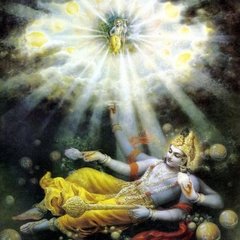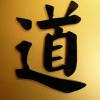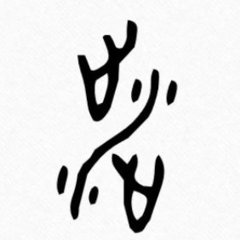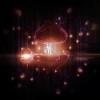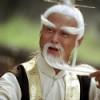Search the Community
Showing results for 'Dream'.
Found 7,590 results
-
I'm going to drop the quote format, since at this point I think it will just bloat my post excessively. - Your experiences of the energy on a "tactile" level sound very similar to mine, except that to me it does not seem to, in the course of normal practice, create a sensation of heat. There are two exceptions, the first is a very mild warmth, more a "glow" than a "heat," in the LDT during MHPearl or meditations which use the same hand positioning, and times when the meditations are seemingly having some kind of specific cleansing or purifying effect (I experienced this quite heavily when I first started practising, and again recently in response to some specific health problems - when I addressed the latter by changing my diet, the strong heat during practice disappeared almost overnight). But the energy itself, in the course of regular practice, doesn't usually feel intrinsically "hot." That said, it does feel "fiery" during certain meditations, or especially when it accumulates in large quantities after particularly intensive practice, but like a "heat-less fire," if that makes any sense. I know it sounds a little contradictory, but there you go. The closest physical sensation I can relate it to is that which you get when you quickly run your finger through a candle flame, able to feel the flame itself over your skin, but not holding it still and thus not letting it burn you. By contrast, the Qi I feel from most other systems of cultivation seems to have a more "electromagnetic" feel to it, for lack of a better word. - The question of secrecy v. openness is a complicated one, and my views are no doubt coloured by the heavy emphasis on secrecy in the Western Hermetic tradition where I started out. Drilled into me by books and teachers and online communities right next to the importance of visualisation was the Four Powers of the Sphinx, "To Know, to Dare, to Will and To Be Silent." I saw the exact interpretation of this debated endlessly, but I also saw the harm it caused. The confusion it created in aspirants, who were exposed to conflicting metaphysical concepts and denied concrete examples to help them sort the real from the absurd. The paranoia it created in students and practitioners, who were left constantly wondering if their experiences, or their lack of certain experiences, were normal or desirable or safe, if their goals were realistic or even attainable, but feeling unable to reach out to other practitioners and describe what was happening for guidance, and lacked other pre-existing examples to reassure them. The teachers who used secrecy as a cover for allowing implicit assumptions to buttress the reality of their achievements and inflate their public profile, or hid abuses or failures beneath it. I think these are murky issues that everyone has to navigate for themselves and ultimately come to their own conclusion on, but I don't think either extreme is healthy and I do think that the current culture in these communities generally leans too far towards secrecy (although this is shifting - for the better imo). I also think that context is important, and that sharing select experiences in a small subsection specifically for practitioners of a certain system in a relatively small community specifically for people interested in such systems of cultivation, is very different from shouting from the metaphorical rooftops about healing energies and blue lights and psychic experiences and visionary encounters. But I also agree that there are certain things which one should be careful about because you can then "pre-load" expectations, which is why I do reserve discussion of a lot of the effects of I get from FP for private correspondences. I think we just have to do the best we can to strike the right balance on a case by case basis. Even on your end, you have no qualms about discussing some things - in certain places, even talking about energy sensations and "golden lights" and such would be verboten. So it seems like it's a question of degree, no? And respectfully, I don't think your story about your MCO experience backs up your point. The way I read it, you had a teacher who did exactly what you're advocating, withholding descriptions of specific sensations which indicated attainment, and it sounds like at the least this didn't prevent you hurting yourself and, quite frankly, it also sounds like it possibly egged you on. And there are potentially other factors - was he teaching a proper method of opening the MCO? Was he teaching that method properly? Was he monitoring your practice and progress with sufficient attentiveness? These all seem at least as important to me as whether you received a description of what to expect or not. Personally, the relative degree of openness (and it is only relative, I know I'm not the only one who reserves a lot for private discussions) which has evolved in this thread over the years is a large part of the appeal to me. If that isn't the case for you, then share what you feel comfortable sharing, and let others do the same. I think that's all you can expect of any informal discussion group. - I still have an extremely hard time imagining your dream experiences, but it sounds like you have an equally hard time imagining the visual experiences I described last night. Such is life, I guess. The metaphor of reading doesn't really work for me, because I can't even think of a certain book, let alone remember or read specific passages from it, without it creating correlating mental imagery. - Regarding your sense that people took your account of the speed at which you practised to be boasting, all I can say without a link to the specific section of the thread where the exchange took place is that there honestly isn't any speed at which someone could describe their practice which I would personally totally disbelieve, since I know the degree to which the movements and breathing slow down during the course of the FP meditations even without conscious effort, let alone when striving for the "speed of a shifting sand dune" as instructed. The only exception would be if someone with no meditation/yoga/IMA experience claimed to be performing extremely long and slow sets, and even then primarily because like any other system, you can only practice for as long as you can comfortably maintain the posture and movement, and while the meditations might slow down movement quickly, they don't allow effortless holding of postures or repetition of movements without the concomitant physical strain. But that's obviously not the case here.
-
The trap is of your own making. What exactly determines the difference you perceive between "inside" and "outside"? What exactly is it which makes you so sure the dream exists only in the mind? It seems preconceived notions veil your ability to see that my analogy is more like saying: As character and video game arise together simultaneously, then the character, the character's seeing within the game, and everything the character sees within the game are all of the same nature. Nothing more, nothing less. Scenario within scenarios, ad nauseam. And yet, you as the seer, the video game and the object within the video game all arise and exist simultaneously within the same reality. Otherwise, you as the seer could not even claim to have seen in the first place. A seer's sole function is to see. Now it's just an aspect? Mirrors only reflect objects within their range.
-
Your dreamer analogy has the exact same circular logic trap. A dream exists in the mind and not part of what we could call outside/objective reality. Your analogy is like saying... Assume you live inside of a video game, and hence, everything you "see" is inside of the video game. The seer and the seen do not necessarily have the same reality. I can see an object in a video game, but that does not mean that I live in the same reality as the object does in the video game. Also, seeing itself does not need to be of the same nature as the seer and the seen object. Seeing itself can just be an aspect of the seer. Similar to a sonar pulse sent out that reflect upon "separate objects".
-
What is potential? It means what manifests is empty - and therefore there is always the potential to change and manifest different experiences. However there is no 'the inherent potential/source' or 'the ultimate unmanifest which manifests things'. The unmanifest simply means emptiness - unestablished, and furthermore is simply the nature of the manifest (form is emptiness, emptiness is form) instead of some inherent essence, then I accept what you say. If however by 'the unmanifest' you mean an ultimate source behind experience, then I do not agree with you. There is no cosmic mind or shared potential behind all things... the only thing which all things share is their empty nature, which allows for change and infinite potential. By that I do not mean 'a great void in which things arise and subside from/to' - by emptiness I mean the non-inherent, unlocatable, ungraspable, D.O. nature of all arisings. p.s. why the notion of a 'Source' no longer apply after insight of Anatta is this... as I wrote yesterday: When we talk about the nature of reality, many of us think of a Source. What source? An ultimate source, an ultimate awareness that displays or manifests everything. In our mind, we picture awareness like an eternal sun shining on the passing clouds in the sky... the eternal sun is primordially untainted, pure, unaffected by the passing/transient stuff, yet it is also the source of all the manifestations/transient stuff. We picture a Source 'illuminating' and 'manifesting' things... We think of Awareness as an agent 'perceiving' and 'illuminating' objects... this can certainly appear to be the case even after transcendental experiences of I AM and Non-Dual, with the 'view of inherency' still strong. However the insight of Anatta removes the notion of an agent or source... why is this so? Anatta means this... in hearing, there is no hearer... there is simply the self-accomplishing process of hearing which is really the experience of sound, music, changing moment to moment, arising according to conditions. In seeing, there is no seer... it is simply a self-accomplishing process of seeing which is is simply the experience of sight, the shapes and colours, changing moment to moment, arising according to conditions. In thinking, there is no thinker or controller of thought... there is simply the self-accomplishing process of thinking which is thought, changing moment to moment, arising according to latent tendencies and other supporting conditions. So if there is no agent, no source, no ultimate Awareness - only awareness/hearing/thinking as a process of manifestation... this is not a denial of awareness, hearing, seeing, perceiving, but a denial of awareness/perceiving/etc as an 'agent' of experience - it is simply a process of experiencing without experiencer. If this is the case, is there a primordially pure Awareness? The answer is this... Awareness is simply the self-luminous appearance, and this self-luminous appearance is ultimately empty, unborn, and primordially pure. This arising sound... this arising sight... scent... thought.... This is it. It is not about the transient clouds obscuring or tainting the primordially pure sun and then trying to remove all the clouds to get back to that pure sun... rather, it is that, the passing cloud seen as it is, is primordially pure, empty, self-luminous and spontaneously perfected. And yet... undeniably, ignorance arise and we experience apparent duality and inherency where none can be found... this false view of reality is the cause of all our grasping and sufferings and problems. Yet the cause of liberation is not found by shunning the transience or sinking back into a Source... it is not about a 'freedom from appearance' or even a 'freedom despite appearance'... appearance is primordially pure! This appearance (seen rightly) alone is self-liberating! It is about a shift in view/paradigm... a shift from duality and inherency to a non-dual, non-inherent viewless view of transience. Liberation is thus not about abiding in an unborn ultimate essence... but seeing all appearances as luminous, empty, unborn, primordially pure and spontaneously perfected. Dzogchen master Longchenpa: ...All phenomena are primordially pure and enlightened, so it is unborn and unceasing, inconceivable and inexpressible. In the ultimate sphere purity and impurity are naturally pure and phenomena are the great equal perfection, free from conception. Since there is no bondage and liberation, there is no going, coming or dwelling. Appearance and emptiness are conventions, apprehended and apprehender are like maya (a magical apparition). The happiness and suffering of samsara and nirvana are like good and bad dreams. From the very moment of appearing, its nature is free from elaboration. From it (the state of freedom from elaboration), the very interdependent causation of the great arising and cessation appears like a dream, maya, an optical illusion, a city of the gandharvas an echo, and a reflection, having no reality. All the events such as arising, etc., Are in their true nature unborn. So they will never cease nor undergo any changes in the three periods of time. They did not come from anywhere and they did not go anywhere. They will not stay anywhere: they are like a dream and maya. A foolish person is attached to phenomena as true, and apprehends them as gross material phenomena, "i" and "self," whereas they are like a maya-girl who disappears when touched. They are not true because they are deceiving and act only in appearance. The spheres of the six realms of beings and the pure lands of the buddhas, also are not aggregations of atoms, but merely the self-appearances of beings’ minds. For example, in a dream buddhas and sentient beings appear as real, endowed with inconceivable properties. However, when one awakens, they were just a momentary object of the mind. In the same way should be understood all the phenomena of samsara and nirvana. There is no separate emptiness apart from apparent phenomena. It is like fire and heat, the qualities of fire. The notion of their distinctness is a division made by mind. Water and the moon’s reflection in water are indivisibly one in the pool. Likewise, appearances and emptiness are one in the great dharmata. These appearances are unborn from the beginning, and they are the dharmakaya. They are like reflections, naturally unstained and pure. The mind’s fabricating their existence or nonexistence is an illusion, So do not conceptualize whatever appearances arise...
-
Hi Lost in Translation, More on Castaneda - I will pick up Castaneda's books and read. Carlos Castaneda (December 25, 1925–April 27, 1998) was a Peru-American author with a PhD in anthropology. Starting with The Teachings of Don Juan in 1968, Castaneda wrote a series of books that describe his training in shamanism, particularly with a group whose lineage descended from the Toltecs. The books, narrated in the first person, relate his experiences under the tutelage of a Yaqui "Man of Knowledge" named donJuan Matus. His 12 books have sold more than 28 million copies in 17 languages. Critics have suggested that they are works of fiction; supporters claim the books are either true or at least valuable works of philosophy and descriptions of practices which lead one to an awareness of energies, beings and worlds which lie outside the perceptual paradigm of the vast majority of human beings on this planet. Castaneda withdrew from public view in 1973 to work further on his inner development, living in a large house in Westwood, California, with three colleagues whom he called "Fellow Travellers of Awareness." He founded Cleargreen, an organization that promotes Tensegrity, which Dr. Castaneda described as the modern version of the “magical passes” of the shamans of ancient Mexico. Magical Passes comprise bodily movements discovered in dream states by shamans of don Juan’s lineage, expanding their powers of perception - Wikipedia - LimA
-
First of all, a sincere thank you for taking the time to reply so fully and openly. Regarding the reason I felt my contributions to have been resented - I simply spoke my truth when I recounted my experiences last year when I had been training in FPCK for a while. I wrote about the time it was taking me to complete each section of each meditation, and I knew that no-one believed me, and had the distinct impression that my answer was viewed as being in search of praise or perhaps looking to boost my ego. In fact it was a real issue for me, as it still is, due to the fact that at such a slow pace I would literally need all day to complete all the meditations, and at that point if memory serves me, I was only practicing Volumes 1 and 2, possibly 3 as well, so you can imagine what it is like now that I have included Volume 4 and 7...Sifu Dunn did eventually provide me with a full reply, but by that time I had lost track of the original content when I originally posed my questions and was in turn then unable to reply. That is to be expected, but my point is that this was an issue which was actually interfering with my training, or my ability to do so in a confident manner. I don't need hand-holding, and have many years of various types of Qigong cultivation under my belt. But when I ask for help is because I really need it. I am far from being a new member. In fact I was a well known and regular contributor under a different name since several years ago - albeit not specifically on this particular thread, but due to a glitch in the system I lost my identity and was forced to adopt this one fairly recently, and was also unable to change my name to the original one - it wasn't for want of trying. Unfortunately, I have forgotten the name I used, and so am unable to access my previous posts to various sub forums. Precisely...and I see no reason why I should not have been included with those contributors, but as you can see I was not. Yes, I have also been in that situation with regard to replying to responses from Sifu Dunn, but this is compounded for me by the amount of time it takes me to compose a reply like this one, which is part of what I intended explaining in my long post. It really does take me several hours, this is no exaggeration, and sometimes I simply cannot face it, particularly when I asked a great many questions, and after a lengthy time receive a reply. It is just too difficult for me to remember everything pertinent to the original post I wrote after a significant amount of time has passed. I take your point, but in this particular instance I believe my case is an exception, and my posts can demonstrate this to be a fact because I offered information on the thread which was ignored, while the posts immediately following mine on the same subject were all answered with much gratitude, as though I had written absolutely nothing... Thank you for your offer. I will try and sift through the posts and provide you with the links, particularly since I still find myself affected by the same issues I was posting about. Sifu Dunn did respond to me, by the way, but he was the only one to do so, aside from a single pm I received from another member. Failing that, I could simply post the page containing my contributions to this thread since the date I joined it, and you can then see my posts in context and see how the majority were totally ignored. Thank you, that is the sort of feedback I need. It would be interesting if other practitioners were to pick up on this point and also provide some feedback as to whether they too were experiencing this, and how they managed to deal with this? If I were to try listening to music during meditation, I suspect it would lead to sensory overload, quite aside from the experience you describe. In any case, I don't subscribe to the idea of introducing anything from the illusory world we are supposedly freeing our consciousness from - it seems to me to be defeating the entire object of practicing anything other than a watered down New Age approach to meditation. Primarily, Professor Zeman from the University of Exeter Medical School, the man who actually named the condition Aphantasia, following a study on the topic decided to ask the public to fill out questionnaires dealing with the ability to visualize, and was very surprised to receive communications from around 10,000 people who suspected that they were experiencing Aphantasia. This was in the UK alone in a single year. These questionnaires investigate to what extent a person is able to use the sensory faculties attributable to mental imagination, and how this manifests, which senses are affected and to what extent. For many of us it has come as something as a shock, and several were clearly left in shock when they realized that when a non-aphantasic person had been describing their ability to visualize or imagine something - that they were not simply describing some sort of conceptual idea, as it was for us, but rather actually being able to mentally 'see' what they were describing - in many cases just as clearly as they were able to see with their physical eyes. This is really not possible for me to understand, any more than you could expect to be able to explain your sight to a non-sighted person. As I said, an aphantasic person is mentally blind, and incapable of imagining or remembering touch, taste, smell and often sound as well. Here is a link to an article which expresses this quite well: https://www.facebook.com/notes/blake-ross/aphantasia-how-it-feels-to-be-blind-in-your-mind/10156834777480504/ And a Youtube video in which you can clearly see the state of confusion and shock of the person who uploaded the video: So how did these neurologists go about proving that there was actually some physical neurological difference between an aphantasic and a non-aphantasic subject? We already know that using MRI scanning in the process of a subject whilst they are in the process of using the visual imagination, the corresponding areas in the brain light up where such activity is taking place. However what they found to their surprise when examining aphantasic subjects was that none of these areas reacted at all, these parts of their brain simply remained inert, showing conclusively that their brains were neurologically wired differently and did not react to the same stimuli. Indeed the corresponding area was also physically smaller than its counterpart in a non-aphantasic subject. The investigation of this phenomenon is still in its infancy, but scientists are presently considering direct stimulation of these sensory centres in the brain as a possible way to bring the faculty of visual imagination to aphantasic subjects. I am in communication with Professor Zeman in order to try and obtain more information and offer any further insights in order to help in these investigations. It has been established that worldwide, this condition affects 2 - 3% of the human race, but probably the figure is higher, as so many people affected would be unaware of these studies and the fact that the condition had actually been identified - that is if they actually know that their mental process is any different than anyone else's. You will understand more when you read the above article and others. Of these, the majority were born that way, but the first such case was in fact the discovery that a patient had lost their mental sight following heart surgery. In my own case, I probably lost my mental sight at the age of about 9, and according to my late mother, prior to that had a remarkable photographic memory, no vestige of which now remains. This is where things become confusing to me, because I do not know whether the visual phenomenon described is a result of an augmentation of the 'normal' ability to visualize, or the opening of what the Daoists call 'The Celestial Eye' (the Third eye?), perhaps Sifu Dunn wouldn't mind clarifying this point please? I suppose once I do reach that stage, it will be even more obvious than it would be for a non-aphantasic practitioner, but perhaps it cannot manifest in this way in my case. I have been training quite intensively, when you take into account that I began my training something over a year ago, but I am now learning the 4th meditation from Volume 7, having completed Volumes 1 through 4. But I have experienced none of the visual manifestations described by you and others whatsoever. What I do experience are very profound samahdic states and Qi manifestations, probably because I am only capable of immersing myself into those experiences in the absence of the ability to experience any visual manifestations. Regarding dreaming no, in fact many Aphantasic subjects have quite normal dreams, subject to the variations in clarity which affect people in general. However the ability to maintain any visual memory of the dream once awake is often nil. I certainly have been dreaming more since I have been practicing FPCK, but the only visual imagery I have ever had aside from the use of psychedelics is the shape of an eye appearing at times in front of my brow, and I perceive this in a violet or blue colour. But it has happened very rarely and does not last long. That will depend on the effect of these posts. Unless other members make it known that they are interested in my future contributions, it really would not be worth the hours of effort each post necessitates, so don't count on my continuing contribution.
-
DSCB57, For my part, I think it sucks that you've felt rejected somehow by the conversation in this thread, but I honestly don't think you should take it to reflect anything about you as an individual, and I certainly can't imagine any reason someone would actively "resent" your contributions. There are a lot of reasons that a certain post or series of posts might not get the level of response you were hoping for, and if you link to specific examples I'd be happy to try and both evaluate why that might be and to rectify it to whatever ability I have (I'm currently typing on my tablet, and trying to navigate back through long discussions on this thing is a nightmare, especially since the browser likes to crash whenever I open more than two tabs simultaneously). Personally, I've also had plenty of times where I've posted long, thought-out pieces of content, sometimes things which I'm quite invested in, and not received a reply, or the level of response I hoped for or expected, both in this thread and in other locations. Partly this is just the nature of the internet as a medium. A bit of seeming arbitrariness comes with the limits of a time delayed, remotely-located, text-based medium. Partly it's that this thread is, at the end of the day, a community of sorts, even if a very loose-knit, free-flowing kind. This doesn't mean that new members are unwelcome, far from it, but it does mean that regulars are going to get receive more frequent and detailed communication - not necessarily because of their personal traits or virtues as posters, or any lack thereof, but simply because communities are built on repeated interaction and reciprocity. If I see a post from someone like Earl Grey or Tao Stillness (to name the first two regular and recent contributors to come to mind), then I know that if I reply to it, my response will very likely receive a reply in turn, and engender an exchange of ideas and experiences which will benefit all participants and the tone of the dialogue here in general. This is because they've been posting regularly for a while now and we've had these kinds of exchanges before. There's also a degree of shared experience as practitioners have been moving through the same system of training over a shared period of time which creates common ground and makes discussion and exchanges flow more easily. On the flip side, to provide a counter example that I think proves the point, Sifu Terry made an excellent post in reply to my discussion with him about sleep and training, and I've gone two weeks without responding to it (admittedly, feeling somewhat guilty ). This obviously has nothing to do with my opinions of Sifu Terry or the content of his post. It's a combination of the fact that I've had an insanely chaotic 2 weeks which hasn't allowed for much time on forums (and that I spend less time on daobums in general these days than I once did), that I've been experimenting with different ways of implementing the advice and concepts he discussed into my training, and that I want to make sure I sit down and do his post justice in my reply, and I haven't had the chance to do that yet due to aforementioned personal business and focus on training. Point being, sometimes the level of response you get really doesn't have anything to do with you or your posts. Obviously I didn't neglect to reply to Sifu Terry because I dislike him or felt his post was somehow unworthy. I'm not trying to be dismissive, since I've been in exactly your position in other communities and know the feeling very well, just saying that the lesson I took away from that experience was that sometimes it really isn't you - don't overthink it Anyway I was sincere in my offer to try my best to respond to any particular posts you feel have been neglected if I can offer insight into their content, so if you read this feel free to reply with links or to PM them to me and I'll get back to you (although I can't guarantee I'll be immediate doing so, my life has mellowed in the last couple days, but I still have a backlog of correspondences and, as I said, simply don't spend as much time online as I once did). Regarding the rest of your post, three points: - "because the bliss experience interferes with my inner dialogue, and I have no way to remember which breath I am on and often have to start over" I have the exact same experience, and I can state for a fact that I have fairly vivid and active (excessively, from the complaints of my old school teachers) visual and imaginary faculties, so I'm not sure that this one is related to your aphantasia. I find that the breath sequences cause me to sink into mental quiet incredibly quickly, and that it's a bit of a tight-rope act maintaining enough concentration to remember where I'm up to in the breathing sequence. For a decent chunk of time I'd get lost and have to restart probably every second or third meditation. As an interesting aside, a side effect of this is that I simply cannot practice FP while listening to certain pieces of music, because they draws my attention in a way which breaks this tight-rope concentration instantly. I tried practising to Glass's Metamorphosis once, a piece of music I otherwise enjoy, and it ruined my attention so thoroughly that I took I think 3 attempts to get through the breath sequence, and even then it was an ordeal to try and relax and go through with the meditation with the music playing. On the other hand, lately I've been obsessed with practising to Clint Mansell's soundtrack for The Fountain, and I have no idea why one would destroy my concentration while the other immediately calms and relaxes me and enhances my FP meditation experience, despite not being massively dissimilar pieces of music (to my amateur understanding). - You've got me curious, how on earth is such a condition recognised and diagnosed? And what is dreaming like for you? - I hope you keep posting, if only because I'm very interested in what happens when you reach the stage in your FP practice where most people start experiencing fairly intense and consistent visual phenomenon. I don't know how heavily you've trained so far, but I know that meditations such as MGAM and MSW1 engender all kinds of interesting visual experiences form me, both open and closed eyed and during and after the meditations, and I'm definitely neither the longest nor most consist practitioner here. Likewise, to tie back to my earlier question about dreaming, the MSW meditations have a profound effect on my dreams, and if your dream experience is in fact different as a result of aphantasia (as I imagine it must be), I'd be interested to know how your experiences of these effects of the meditations are also different. In summary, please keep posting, if only to satisfy my selfish curiosity And again - don't overthink it.
-
Anyone here frequently dream about a specific color? My color is blue. A lot of times, this color would appear in my dreams and begins to associate with the throat chakra literally, something relating to the throat itself....blue chocolate that I wanted to eat, while I was in my old work place. Although the experience was pleasant, it is not a place I want to still dream about. Yet, I am frequently dreaming about my old work place and my old boss. A window with a blue sky on the other side. It lured me in and I found myself in a museum filled with ghosts and spirits. Another recurrent symbol is a door, a tunnel. Some small opening I was trying to get through. It just hits me that maybe my mind is telling me to develop my throat chakra further. A lot of times, in these dreams, I found myself too big to fit through this tinny opening. Not sure what it said about the throat chakra. One thing for sure, based on various reading, having a properly functioning throat chakra would also open one's center channel. Also, having a properly cultivated throat chakra, one can discern illusions from reality. That's something I am trying to figure out. I feel that my mind is being clouded by some illusions...that's because I am having visions about my future in which I am not able to determine if it would become a reality in my real life. Yet, these visions are very powerful.
-

Excerpt from The Wheel of Time, by Carlos Castaneda
manitou replied to manitou's topic in General Discussion
Apparently Castaneda brings up some deep emotions in people; pro and con. I guess my final thought is this - the series of books, I don't believe, was ever intended for anyone to take the events literally. At the first of the series, Carlos makes it clear that don Juan Mateus was not a real person, and this was a made-up name. To the best of my recollection without going back and getting my old books out, Carlos was never shy about telling us these things happened in a separate reality. One of the books, in fact, was titled A Separate Reality. This is merely the realm of lucid dreaming, which many on this site are capable of doing, if we are to believe what our friends say. Don Juan, the fictional character, was probably a compilation of many sources of the Toltec wisdom; the important thing is that it's getting passed down. However, to say these things didn't happen, just because they didn't happen in this particular sphere or reality, isn't quite right. They did happen in a parallel and separate reality. This was the reality that Carlos first found through use of hallucinogens and later without the need for them. don Juan had gotten to the point, as a nagual, that he was capable of including Carlos in his dreams with Carlos' awareness. They had a twin experience. We know that we can go out of body; no doubt everyone here has their own method for journeying. East and West share these teachings. And we also know that one who can manipulate his dreams can also develop the skill of including others in the lucid dream. But the underlying path to self realization is contained within the series of books. Here are a few of the concepts that come to mind; there are probably others that I'm not thinking of at the moment. These concepts are all vital for self-realization or self-awareness. KNOCK OFF THE INTERNAL DIALOG. This was a constant and recurrent theme in the books. It's one we discuss often on this website. The volley of words that stream between our ears at any given moment, our consciousness, is the very thing that don Juan repeatedly had to instruct Carlos about. This must be stopped for any Truth to get through. This goes to stopping the judgments, the superstitions, the bad words we silently say when someone cuts us off in traffic. This was a huge requirement in his shamanic instruction. It doesn't differ from any other road to self-awareness that I can see. And this, of course, is what meditation is all about. LOSE THE SELF-IMPORTANCE This is huge. It means finding a way to push ego out of the way and not let it control us, our actions, our words. Carlos had a lot of losing of his self-identity (anthropoligist) to do; he came to don Juan (or whomever)full of himself and sure of his tight-as-a-wound-spring left brain mental capacities. Those were the very things that were getting in the way of Carlos' development; the old identity and the pride that went along with it. Carlos lost his up-tight identity in a pretty big way during the first book or two when he was ingesting copious quantities of hallucinogens at the beginning of his quest. But not only did the hallucinations aid him in seeing the separate reality of don Juan's creation, but they must have gone a long way in tamping down his ego. After all, how cool can you think you are when you come to in the desert repeatedly, often with bodily secretions present and accounted for. I almost felt Carlos' pain during the gradual death of his ego, which was a slow and painful death. THE RECAPITULATION OF A LIFE This is huge too. Having been in a recovery program for a long time, I personally know the power of taking one's own inventory. don Juan had him remember all the way back through his life - writing everything he could think of as to his behavior in every situation. This process took years for Carlos to complete. Periodically he would mention working on it throughout the series. The Carlos that started writing the series in the 60's was not the same Carlos that finished the series in the 80's. He had become a self-realized man, a self-aware man. LOSING THE SUPERSTITION OF RELIGION I remember reading one mention, and one mention only, where don Juan responds to something dumb Carlos said (as usual) about some Catholic religious practice, and don Juan's reply was "That's idiotic. There is no God." I was a little surprised that it wasn't more predominant as a theme throughout the books. But it wasn't. It was only there once. But the loss of structure was the very thing that Carlos had to lose. Apparently he did. AWAKENING THE RIGHT BRAIN Carlos was all left brain before his apprenticeship. It was through the lucid dreaming and the hallucinogens that his right brain was activated; he began inhabiting a world where Newtonian physics were not the operative thing. Once the connection was established by repetition with the hallucinogens (and the discussions with don Juan or whomever) the hallucinogens were no longer required for extended stays in the separate reality. He was able to do it with Intent within the realm of his lucid dreams. And he learned how to manipulate his lucid dreams; how to break off of one lucid dream into another, and into another; then to return in reverse through each lucid dream bubble. It took years for Carlos to be able to do this. Heck, it took years for him to be able to see his hands in his dreams. But once he broke through that thick left brain, he was able to do it. As to Tensegrity, I wish I had something to offer here. I was not motivated to learn the so-called magical passes. First of all, I hate the name. And I don't think passes are magical. I don't think any one QiGong is the only way, either. I think everyone has to find their own way of dealing with this sexual earth energy in any way that they can. That's my opinion now. I've read and tried so many different magical ways of moving one's hands and moving the energy! I do have my own way now, but it's what comes up in my mind's eye when I'm doing something that requires the earth magic. I've come to the conclusion that They're All Good! What the variable is, is how prepared we are internally to move the energy. If we have been earnest in removing every blockage we can find that affects our mental attitude, our energy flow, our inner dialog, then once you've emptied yourself out, stilled the mind, stilled the body, and allowed the energy to enter your channels, the next step is to plant the seed of high Intent. Energy follows Thought. I think that's really all we have to know. Anything physical beyond that is certainly beneficial for the healing or the ceremony or the mindset of the person in the circle; but it's almost a trapping, as I see it. Actually, although I don't like the name, Tensegrity must be a cross between 'tension' and 'integrity'. Using that line of logic, perhaps Tensegrity started out more purely when it was first Intended. Maybe it emphasized losing the things that needed to be lost (as discussed above) Things have a way of losing their essense, just like a row of kids sitting on a bench playing the telephone game. -

I Sense a Coming Change At This Forum
Captain Mar-Vell replied to SonOfTheGods's topic in Forum and Tech Support
... April Fool's Day. Time to dream a new dream. ... -
Do you have sources that dispute A. K. Warder's account in Indian Buddhism, pg 211? We seem led to the conclusion that the two parties were less far apart than at first sight they appear to be, except on the first ground. The Sthaviravada were categorical that an arhant was by nature beyond the reach of any possible seduction; the Mahasamgha allowed an arhant to be seduced in a dream. Between these opinons no compromise could be found, in spite all the Buddha's injunctions (in the Vinaya) on the reconciliation of dissident views. The majority of the assembly held that an involuntary happening was no indication of whether one was an arhant or not, and thereby no doubt made it possible for more persons to be recognized as arhants. The minority, which included, apparently, most of the elders, refused to countenance such a weakness, such an evident attachment to the world. No compromise having been reached, the two parties separated and became two schools of Buddhism. Afterwards they gradually came to disagree on several more grounds, partly through working out the implications of their positions. In particular the nature of the Buddha was reconsidered. In the Tripitaka he is not apparently distinguished from any other arhant, except that he had the exceptional genius necessary to discover the truths unaided whilst the others were helped by his guidance. The Sthaviravada remained closer to this conception, although they gradually attributed a higher status to the Buddha, eventually complete 'omniscience' (sarvajnata), especially in their more popular propaganda. The Mahasamgha, on the other hand, having relaxed or at least not made more stringent the conditions for an arhant, found it desirable to make a clear distinction in the case of the Buddha: he was a being of quite a different nature, far above other human beings or perhaps not really a human being at all... A. K. Warder does go into his sources some, and apparently compared several extant versions of the Canon to the extent he was able, including Chinese, Tibetan, and Southeast Asian versions. Not sure from where he drew the historical info, but he spent time in India, and was involved with the Pali Text Society.
-
Fellow bums, I have The Importance of Living by Lin Yutang, written in 1937. Most everyone here will know Lin Yutang was a well-known Tao translator, and a prolific writer. This is the most endearing and engaging philosophical book, and I would like to share some of its contents with you. He seems to have the Tao philosophy intervowen into his thoughts and his humor. - Manitou APPROACH TO LIFE (PAGE 1) "The Chinese philosopher is one who dreams with one eye open, who views life with love and sweet irony, who mixes his cynicism with a kindly tolerance, and who alternately wakes up from life's dream and then nods again, feeling more alive when he is dreaming than when he is awake, thereby investing his waking life with a dream-world quality. He sees with one eye closed and with one eye opened the futility of much that goes on around him and of his own endeavors, but barely retains enough sense of reality to determine to go through with it. He is seldom disillusioned because he has no illusions, and seldom disappointed because he never had extravagant hopes. In this way his spirit is emancipated. For, after surveying the field of Chinese literature and philosophy, I come to the conclusion that the highest ideal of Chinese culture has always been a man with a sense of detachment (takuan) toward life based on a sense of wise disenchantment. From this detachment comes high mindedness, a high mindedness which enables one to go through life with tolerant irony and escape the temptations of fame and wealth and achievement, and eventually makes him take what comes. And from this detachment arise also his sense of freedom, his love of vagabondange and his pride and nonchalance. It is only with this sense of freedom and nonchalance that one eventually arrives at the keen and intense joy of living. It is useless for me to say whether my philosophy is valid or not for the Westerner. To understand Western life, one would have to look at it as a Westerner born, with his own temperament, his bodily attitudes and his own set of nerves. I have no doubt that American nerves can stand a good many things that Chinese nerves cannot stand, and vice versa. It is good that it should be so - that we should all be born different. and yet it is all a question of relativity. I am quite sure that amidst the hustle and bustle of American life, there is a great deal of wistfulness, of the divine desire to lie on a plot of grass under tall beautiful trees of an idle afternoon and just do nothing. The necessity for such common cries as "Wake up and live" is to me a good sign that a wise portion of American humanity prefer to dream the hours away. The American is after all not as bad as all that. It is only a question whether he will have more or less of that sort of thing, and how he will arrange to make it possible. Perhaps the American is merely ashamed of the word "loafing" in a world where everybody is doing something, but somehow, as sure as I know he is also an animal, he likes sometimes to have his muscles relaxed, to stretch on the sand, or to lie still with one leg comfortably curled up and one arm placed below his head as his pillow. If so, he cannot be very different from Yen Huei, who had exactly that virtue and whom Confucius desperately admired among all his disciples. The only thing I desire to see is that he be honmest about it, and that he proclaim to the world that he likes it when he likes it, that it is not when he is working in the office but when he is lying idly on the sand that his soul utters, "Life is beautiful."
-

Excerpt from The Wheel of Time, by Carlos Castaneda
doc benway replied to manitou's topic in General Discussion
Loved the books myself. I read them when they were first published and re-read all of them a few years ago. It was an interesting experience - while reading through one of the books that talked a lot about dreaming, I realized one day that I would have a completely lucid dream that very night. Sure enough, became lucid in my dream and spent the time traveling around and doing a bunch of fun stuff. Haven't had a lucid dream since. -

An Experiment in Buddhist Discussion
doc benway replied to doc benway's topic in Buddhist Discussion
I think I understand your point - we are more ignorant when in night-time dream as compared to night-time lucidity and less ignorant during the day-time dream as compared to day-time lucidity. Is that accurate? -

An Experiment in Buddhist Discussion
doc benway replied to doc benway's topic in Buddhist Discussion
I don't think that last post was 50 words or less... A friend, adept at lucid dreaming told me of his experience last night. While "in" the night-time dream, he could feel strong emotional attachment. When becoming lucid, the attachment vanished and he could watch the display with equanimity. I think this is analogous to becoming 'lucid' as we observe our day-time 'dream' from the perspective of the Nature of Mind. -
Those look like dream catchers.
-
Well, actually by doing dreamwork, any kind of dreamwork, your mind becomes more aware of your dreams and learn to make it a natural part of itself. That makes it easier to attain lucid dreaming. Any method that puts your focus on dreams makes it easier to go lucid in dreams. The reason I mentioned Dream Yoga is because it is not a method of interpretation, its a method of communication with the aspects of your self that presents themselves in the dream. You're not dealing with the dream through your daily waking consciousnes, but the consciousness that you are in the dream. By doing this you actually make it easier for yourself to learn lucid dreaming. It is much more effective than regular symbolic interpretation. You can read any book you want, learn a thousand different techniques, and all will get you closer to lucid dreaming. But in the end it is practice and steady focus that really makes you able to do it.
-
This quote from Norbu (Dzogchen master) states that Kundalini energy is the same as the energy in tummo and part of the mother tantras.... As well as utilizing these practice methods as the base, the mother tantras are mainly concerned with the completion phase, or dzogrim, that consists in re-absorbing or integrating the pure mandala dimension within one's "subtle" body composed of the channels, prana, and vital essence (rtsa, clung, thig le). For this reason, the breathing methods and those of concentration on the cakras and channels are indispensable, together with perfect mastery of the kundalini energy. In fact, the famous teachings known in the modern tradition as the "Six Yogas of Naropa," especially widespread in the Kagyud school, belong long to dzogrim. These are: Tuummo, or "inner heat yoga"; Gyulii, or "illusory body yoga"; Wodsal, or "clear light yoga"; Milam, or "dream yoga"; Bardo, or "intermediate state yoga"; and Pliowa, or "transference ence of consciousness yoga." -The Supreme Source
-
I've never really asked why or thought about it too much. I was just following a very clear instruction in a dream to do this certain sort of breathing in through the crown and exhaling down into my belly, and when I started doing that I found that the energy charging action that I had been doing suddenly seemed to disrupt the healing qi, and just the breathing seemed to keep it flowing, so I stopped doing the charging action and just continued with the breathing until a couple of months later I dreamt I was to stop that and just go back to normal breathing. But I'm not really sure about the mechanics of it except to say that it works, and it never gets exhausted. This is pretty much what I did from the start, I just receive quite a lot of detailed information now about what is going on in specific channels. Mostly I don't even feel it, but very occasionally some new gift comes along that demonstrates to me that something is progressing.
-
These are perceptions of all the diffrent input senses you receive as your brain goes to sleep, only you were aware of it and also recall the experience. I can imagine how exciting the experience must have been for you. It requires disciplined practice however to gain control over your perceptions within the dream. Mostly, your consciousness is turned off during the dream because it receives no meaningful sensory input to process and it remains off during the dream itself. It can be really hard to practice becoming a lucid dreamer if it is hard to remain aware within your dreams in the first place.
-
@Jeff, so it's not a system that I follow, but this description of the Vajrayana system is pretty well how I perceive the subtle energy channels. Which channel was associated with the penis I wasn't clear on before as I have only pursued this information previously to a limited extent. Also of interest, in the last paragraph "meditating on the crown chakra is important for consciousness projection, either to another world or into anoher body" sounds like something you focus on, but this is not the only meditation which is important, and they don't mention what meditation on ajna chakra is important for. The Vajrayana system states that the central channel (avadhūtī) begins at the point of the third eye like the of Lord Shiva, curves up to the crown of the head, and then goes straight down to the lower body. There are two side channels, the rasanā and lalanā, which start at their respective nostrils and then travel down to the lower body. The apāna vāyu (down-moving wind, where "wind" means the invisible power to move) governs the lower terminations of the three channels. The lower end of the central channel ends at the rectum. The lower end of the lalanā ends in the urinary tract. The lower end of the rasanā channel emits semen. ...completion stage practices, where an attempt is made to bring the subtle airs or winds of the body into the central channel, to realize the clear light of bliss and emptiness, and to attain buddhahood (Geshe Kelsang Gyatso, Clear Light of Bliss: A Tantric Meditation Manual). ...The side channels run parallel to the center channel, except at locations such as the navel, heart, throat, and crown (i.e., the chakras) where the two side channels twist around the central channel. At the navel, throat, and crown, there is a twofold knot caused by each side channel twisting once around the central channel. At the heart wheel there is a sixfold knot, where each side channel twists around three times. An important part of completion stage practice involves loosening and undoing these knots. ...focusing on the subnavel area is important for the practice of tummo, or inner-fire. Meditating on the heart chakra is important for realizing clear light. Meditating on the throat chakra is important for lucid dreaming and the practices of dream yoga. And meditating on the crown chakra is important for consciousness projection, either to another world or into another body. Wisdom Quarterly: American Buddhist Journal
-
Hi Cloudhands, It is a quote from Machiavelli from the Renaissance. He was speaking to his contemporaries. Charlamagne would be one who comes to my mind as an armed victorious prophet, although that wasn't what I was trying to get at it by posting the quote. The world needs more Buddhas, Gandhis, and Mandelas. We could look to Martin Luther king Jr as being an unarmed prophet that was destroyed. True, his dream lives on, but he didn't make it to see 40, watch his children grow up or see his grandchildren. There are some impressive sword skillz found on Wudang Mountain & of course I could mention Lu Dongbin, Zhen Wu, and Zhang San Feng. I am fine with the rest of the world having strict gun controls. I am not cool with America having them. It is a unique situation here. #ResignSherriffIsrael
-
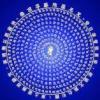
Interdependent Totality in Buddhadharma
Simple_Jack replied to Simple_Jack's topic in Buddhist Textual Studies
Excerpts from Nagarjuna's Bodhicittavivarana trans. by Geshe Thubten Jinpa: http://www.tibetanclassics.org/html-assets/Awakening%20Mind%20Commentary.pdf 39 The cognizer perceives the cognizable; Without the cognizable there is no cognition; Therefore why do you not admit That neither object nor subject exists [at all]? ... 53 To whom consciousness is momentary, To them it cannot be permanent; So if the mind is impermanent, How could it be inconsistent with emptiness? 54 In brief if the Buddhas uphold The mind to be impermanent, How would they not uphold That it is empty as well. 55 From the very beginning itself The mind never had any [intrinsic] nature; It is not being stated here that an entity Which possesses intrinsic existence [somehow] lacks this. ... 57 Just as sweetness is the nature of molasses And heat the nature of fire, Likewise we maintain that The nature of all phenomena is emptiness. 58 When one speaks of emptiness as the nature [of phenomena], One in no sense propounds nihilism; By the same token one does not Propound eternalism either. 59 Starting with ignorance and ending with aging, All processes that arise from The twelve links of dependent origination, We accept them to be like a dream and an illusion. ... 63 In brief from empty phenomena Empty phenomena arise; Agent, karma, fruits, and their enjoyer – The conqueror taught these to be [only] conventional. 64 Just as the sound of a drum as well as a shoot Are produced from a collection [of factors], We accept the external world of dependent origination To be like a dream and an illusion. 65 That phenomena are born from causes Can never be inconsistent [with facts]; Since the cause is empty of cause, We understand it to be empty of origination. 66 The non-origination of all phenomena Is clearly taught to be emptiness; In brief the five aggregates are denoted By [the expression] “all phenomena.” 67 When the [ultimate] truth is explained as it is The conventional is not obstructed; Independent of the conventional No [ultimate] truth can be found. 68 The conventional is taught to be emptiness; The emptiness itself is the conventional; One does not occur without the other, Just as [being] produced and impermanent. 69 The conventional arises from afflictions and karma; And karma arises from the mind; The mind is accumulated by the propensities; When free from propensities it’s happiness. -
Thanks a lot Friend. Yes, this was my impression already that the shielding is part of the transmission. Just wanted to make sure I supposed correctly. It is very interesting what you say about tests in dreams. When I was practicing Tenaga Dalam some years ago, I even had to fight in dreams. I remember one dream where I was taken to a colloseum and had to fight what looked like a Daoist Master in my dream. He wanted to test my abilities and mentioned that he had "heard" of me. I could defeat him, thank god My teacher at that time gave quite a weird explanation. He was convinced that this had been a place of power that was obviously near the place I live. The place was obviously curious about the "new guy" in town and wanted to see what I am up to.
-
will and personal power creativity sexual expression action The Fire Element governs the Sacral Hara Chakra andSolar Plexus Chakra. Zodiac Fire SignsThe Fire signs are Aries, Leo, Sagittarius. People born under a fire sign are energetic and assertive. They tend to be active, competitive and spontaneous. They have a passion for the freedom to do as they wish. They are adventurous, and fun-loving. Lion Meanings and Thoughts on Lion Symbolism The symbolic meaning of lions, as one might imagine, primarily deals with strength. The fact that it is a nocturnalcreature means that the lion is a symbol of authority and command over subconscious thought (as night is an ancient symbol of the subconscious - or dream states). It's interesting that the lion is considered by many ancient cultures to be a solar animal symbol, however it is primarily a nocturnal creature, conducting its hunting activity mostly at night. Further, the lioness is considered a lunar animal. This serves as a symbolic message of balance and sound judgment. In that the lion shares the world of both night and day, the lion bears a message of prudence to us. In other words, the lion asks us to not overdo in certain areas of our lives. Rather, keep an even mind and an overall balance in our life activities. Other than a symbol for strength, other symbolic attributes of the lioninclude... Symbolic Meaning of LionWisdom Power Royalty Dignity Courage Justice Ferocity Dominion Authority In Egypt, the lion represented the ferocious heat of the sun and was seen in the likeness of Sekhmet who is the Egyptian goddess known as the Eye of Ra. She is the power that protects the good and annihilates the wicked. In ancient Greece, lions were identified with Dionysus, Phoebus, Cybele, and Artemis because myth indicates lions drew the chariots for these gods and goddesses. Here, the symbolic meaning of lions revolved around protections and they were viewed as guardians of the dead as well as guardians of palaces, doorways, shrines and thrones. They were also ultimate protectors of hearth and home. In Hinduism, the lion is an avatar (embodiment or personification) of Vishnu. In Buddhism the Buddha sits upon the lion as a throne of consistency, strength and wisdom. In alchemy, the symbolic meaning of lions is associated with the highly idealistic and prized attributes of gold. Lion Symbolism in Heraldry The symbolic meaning of lions in England is shown in heraldic art where it is a common emblem of English sovereigns because of these lion-like traits: Honor Courage Royalty Strength Leadership Lion Meanings in Astrology As a zodiac symbol - those with the sign of Leo likely possess some lion's personality traits such as: Fiery Loyalty Passionate Intuition Generosity Territorial Controlling Self-confidence Those born under the sun sign Leo are fiercely independent, confident and in control. They are creative and influential forces and have the internal power to make positive (or negative) changes in their lives and the lives of others around them. They are very loyal people, and will defend friend and family honor to the death. My friend Goran Jonsson has perfectly captured the strength and ferocity the Leo represents in his zodiac pendant shown left. Lions as dream symbols indicate we may feel as though we are being preyed upon, or we are in a position to defend ourselves. Dreaming of lions may also be a sign of our need to get in touch with our emotions, and tame them if necessary. In esoteric studies, the lion makes its appearance in the Tarot where it is illustrated in the Strength card of the Major Arcana. When we observe the lion in nature, we detect an easy strength and a natural dignity. The lion is born powerful, and power comes naturally to it. There is no false bravado as the lion has no need of it. When the lion comes to us it is a sign for us to step into our natural birthright of power. Each of us is born powerful and divine. The lion reminds us of this. Symbolic Messages the Lion Offers UsHave courage, have faith Stand tall, remember your birthright of power Hold your head high - even in times of conflict - conduct yourself with dignity It may be time to defend something that is dear to your heart - defend it fiercely if you must Perhaps it's time to show your authority (not in a dominating way) but lead others with a loving heart



